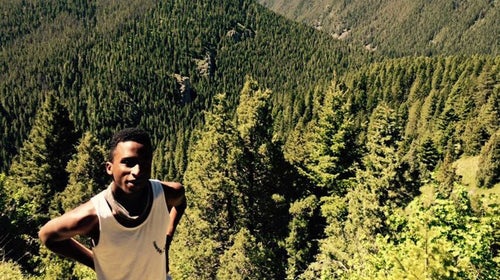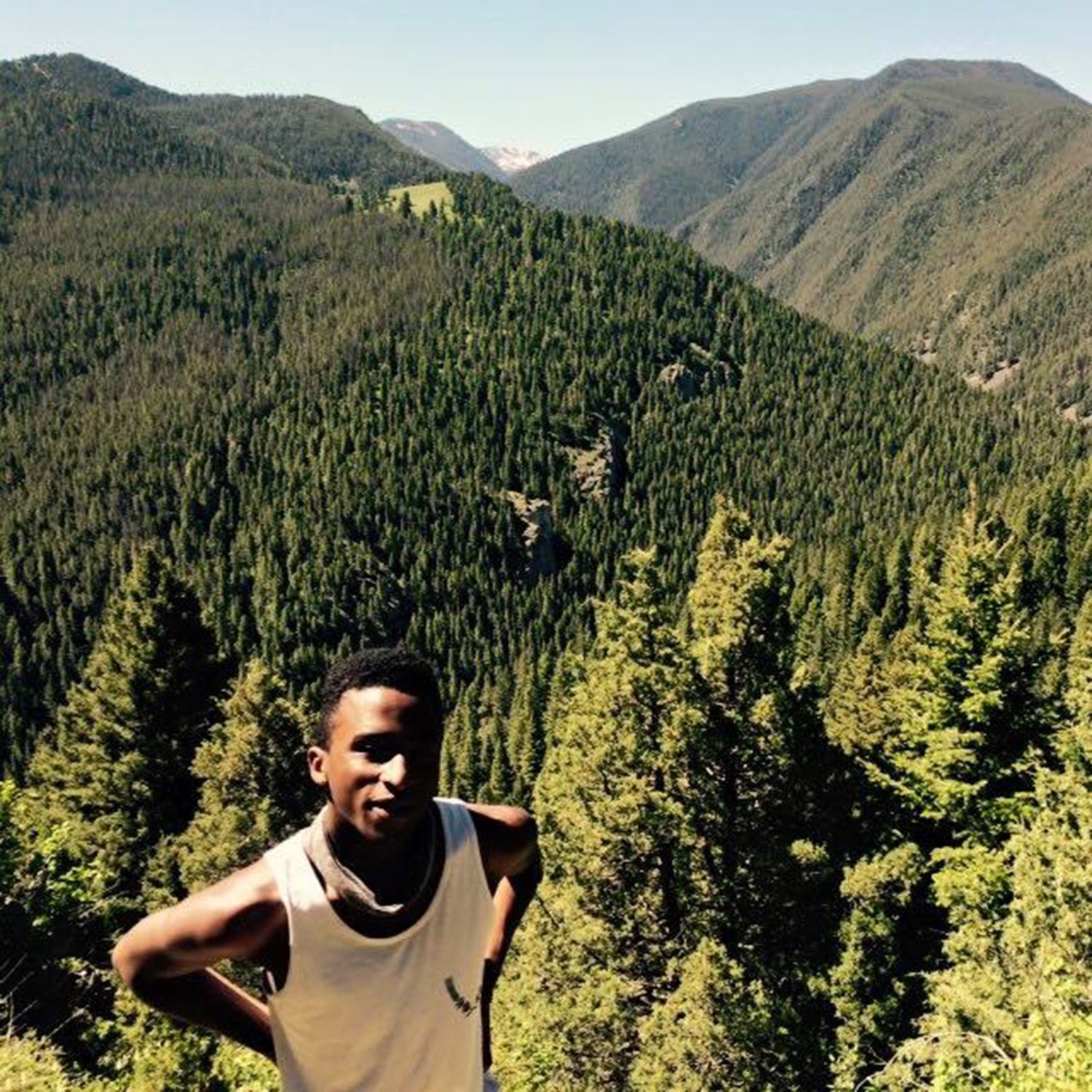As a child, I spent most of my summers visiting family in Jamaica. We would go to “the country,” as most Jamaicans called it, where black skin, kinky hair, salt fish, and coconut trees were plentiful. We got our water from a well and relaxed all day whenever there was a power outage. It was in Jamaica where I learned to believe that natural places meant comfort, that the outdoors could be therapeutic.
A Response from Big Sky Resort
Bike Sky Resort says it has zero tolerance for racism and issued a full response to the storyI assumed the rural United States would offer equally positive experiences. For most of my childhood, that theory was never tested. I grew up on the east side of Cleveland, Ohio, which was predominantly African-American. Growing up, it was common to be told, “Don’t do what all those white kids be doing. You ain’t white.” I became aware of my race there, among others who looked like me. But after moving away from the city, I’d come to learn that towns situated in beautiful natural areas weren’t always like the paradise I’d experienced as a child in Jamaica. Instead, these places can be uniquely isolating for a young black boy in America.
I first encountered rural America in Athens, Ohio. My friends were mostly white, and when we weren’t strolling through the small town, we would go on long drives, sometimes down an unmarked road shrouded in greenery. No matter the time of day, I tensed up during these drives. There is no shortage of Confederate flags or white folks willing to stare at a black person for a little too long in certain regions of southeastern Ohio.
After college, I decided to work as a housekeeper at a ski resort in Big Sky, Montana, as a way to see new parts of the country while making money. My last two years of college were chaotic, organizing rallies around campus after a cop shot Michael Brown and trying to make sense of what my life would be like after college. Books like had shown me the allure of the West, and I felt compelled to seek wilderness as Abbey had: “We need wilderness whether or not we ever set foot in it. We need a refuge even though we may never need to set foot in it. We need the possibility of escape as surely as we need hope.”
Additionally, my unstylish job in Big Sky as a housekeeper would surely make me an honorary beatnik, like many of the traveling writers I admired. I crossed the country despite my mother’s worry. “Be careful around all those white people,” she told me. I knew her concern was based in bitterness from her own experiences immigrating to the United States in the 1970s and being exposed to the racism of her white classmates as she grew up. Though I trusted her, I knew I had to learn about the world for myself.
I was one of five black people working at the resort that summer. Early on, I began to notice my co-workers’ casual racism. One night, at a campfire with co-workers, an older white man went on a tirade about how certain races “were simply superior,” and no one challenged him. On another occasion, being the only black person in the room, I was asked to explain the controversy over the Confederate flag. While celebrating my 21st birthday at a bar in Bozeman, a Hispanic man called me a gay slur. I shouted at the man until my friend pulled me away.
Seasonal jobs attract runaways and black sheep, and there’s usually heavy drinking when you’re tucked away in the mountains for months on end. I drank almost nightly alongside my co-workers, but it was also to numb my disappointment in the white people around me, who blurred the lines between friendly banter and racist remarks. At the same time, my country rattled with violence and regressive ideas. Donald Trump announced his candidacy for president in June of that summer. Days later, Dylann Roof walked into a church and killed nine African-American congregants. On the day marriage equality was legalized nationwide, I cried because it was the same day as the funeral for the pastor, , who was killed in the church. Mainstream media chose more digestable images to fill most of our screens with that day, and my co-workers only noted how happy they were that “equality was here.”
When my black friends were called the N-word at a local bar and were asked to leave when they shouted down the racists, I reached a breaking point.
After leaving my first summer season in Montana, I did a stint of social justice work in Seattle and met activists while traveling in France for a month. I met people who took care of each other and talked openly about what hurt them in life. The time away from Montana dulled the sharpness of my experience that first summer at the resort. Desperate for money following France, I thought the choice was easy. I started a second summer season in Montana and hoped for the best.
When I was not working, I was drinking with my predominantly white co-workers. My boss would regularly make “whites only” or “blacks only” jokes. When he sensed my quiet discomfort, he would say that he only made the jokes to “poke fun at dumb racists.” His friends often rapped along to songs and said the N-word in their lyrics. His girlfriend would confide in me about their many heated arguments, and then tell me that I needed to lighten up about her boyfriend’s problematic jokes.
Meanwhile, I couldn’t ignore the glaring reality that most of the ski resort guests were also white and middle or upper class. I occasionally thought about my Jamaican grandmother cleaning the homes of upper-class white families upon arriving to the United States in the 1960s. Maybe I wasn’t far off from some of the things she must have experienced.
During the summers of 2015 and 2016, police killed more than 300 black people in the United States. I remember watching the press conference on national television in July 2016 in a hotel room, unable to clean anymore, as Alton Sterling’s son cried for his slain father. Then I watched white folks pick the story apart on network television and in casual conversations. To them, maybe his father shouldn’t have been selling CDs outside a gas station, or if he’d acted differently he wouldn’t have been killed.
I had initially resolved to survive Montana that second summer with a full heart, but I came to realize I couldn’t. I choked up in rooms when people made racist jokes. I stopped bringing up the news of yet another black person killed by police—my white co-workers could only manage to fake concern for a few seconds. Most of my white co-workers considered themselves to be vagabonds. They loved to camp, hike, and ski, which is why seasonal work appealed to them. But their transient nature also often meant wanting to “stay out of politics” whenever I mentioned my past of political organizing.
I’d been called a faggot, listened to white people laugh at racial slurs as if they were jokes, and told that I took my humanity too seriously in a country born out of racism and violence.
When my black friends were called the N-word at a local bar and were asked to leave when they shouted down the racists, I reached a breaking point. The next night, I drank with a group including my boss and his girlfriend. The light laughter and jokes quickly shifted to a bunch of white bros playfully calling each other the N-word in my presence. I cut through the jolliness in the room. “Why’s it funny to call each other the N-word?” I asked.
Every white person in the room stared back in confusion. They began to argue with me.
“You take everything so seriously,” one said.
Another openly scoffed and rolled his eyes. “Here goes Prince being angry again. You just don’t know how to have fun.”
I eventually left the argument to go outside. I stood before a nearby lake and gazed out at the mountains shrouded in darkness. The next morning, I sobbed in the bathroom before work as I talked to a friend on the phone. Her advice was the only thing that made sense after the humiliation I’d faced. “Why put yourself through that? Just come home. We’ll take care of you.” I booked an early flight back to Ohio.
I had fully come to realize what my mother had been worried about: how isolating it was to live in a place where there were few people like me—and few people who cared about my experience, took me seriously, or were even willing to stand up against bigotry in my presence. I’d been called a faggot, listened to white people laugh at racial slurs as if they were jokes, and told that I took my humanity too seriously in a country born out of racism and violence.
As a writer, the hardest part was realizing that Edward Abbey’s words about wilderness, refuge, and hope could not apply to me as long as white people failed to eradicate racism.
History has already shown us that racism is verbal, physical, and psychological, and it affects black people on a generational level. We internalize it and learn to stay silent, for our own safety, when confronted with it. In Montana, I had no reason to believe I’d be protected when I fought back against racist behavior, so there could be no refuge or hope for me in this outdoor space I’d romanticized—only glimpses of it. Especially under the policies of the Trump administration, we need to wage war with the apathy white people so easily adopt as they joke about or benefit from racism.
My experience is proof that until this happens, nature will be a refuge only for some.


